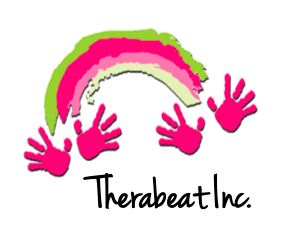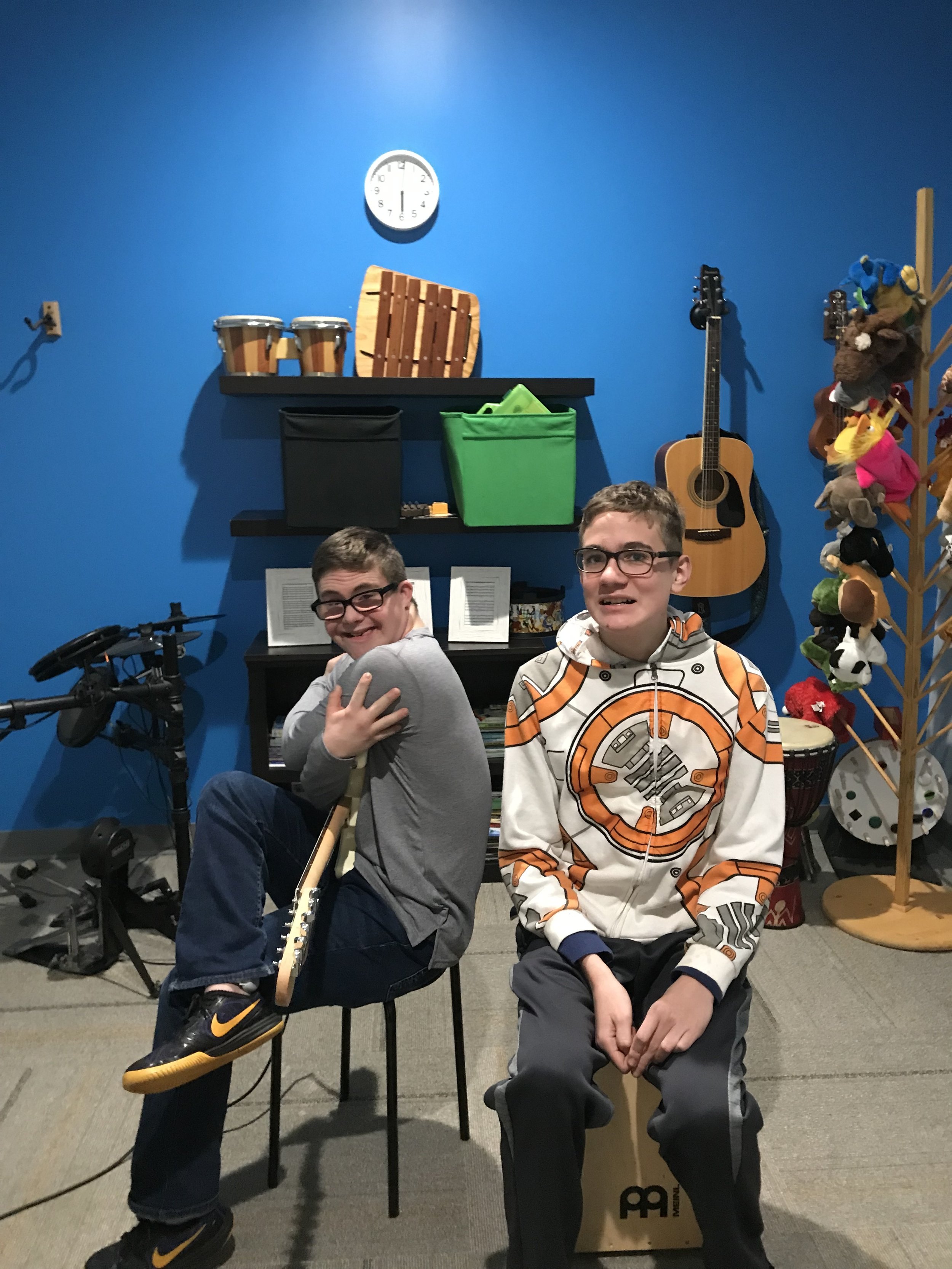Transitional academies are placed in some school systems for young adults ages 18-21 in order to give these individuals a launching pad before going into the real world. In these programs, they acquire skills necessary for living and working in the community. Additionally, they learn effective social skills as they are placed in a group classroom setting. Transitional programs and music therapy can go hand-in-hand, because one overarching goal we have for our clients at Therabeat is using musical interventions in order to help our clients in their daily lives. Two primary ways music therapy can help these clients is facilitating growth in social and attentional skills.
Social skills are crucial in development, and especially for clients getting prepared to start a career. There is a connection between behavioral and social difficulties as children mature into young adults. Lower social competence can lead to an increase in depression, conduct issues, and anxiety (Gooding, 2011, p. 441). Luckily, there are multiple social aspects that play into the music making process! Cooperation, verbal and non-verbal communication, peer collaboration, impulse control, delayed gratification, and recognizing and supporting the rights of others are all areas that can be addressed through music therapy (Gooding, 2011, p. 442). For example, an intervention requiring each client to play a separate instrument can be used in addressing these social skills. Clients can exercise these skills by waiting their turn before they are allowed to play their instrument, actively listen to their peers as they are playing their instruments, and cooperate by playing in-sync with the group to the best of their ability. Due to the non-threatening nature of music, it can allow for successful participation regardless of ability level, and teach social and leisure skills simultaneously (Gooding, 2011, p. 442).
Along with social skills, attentional skills are also important in social development. Music Attention Control Training (MACT) is a technique that is used to target specific attentional skills. Attentional skills addressed include sustained attention, selective attention, and switching attention. One particular study used MACT and measured how attentional skills improved in a group music therapy setting. The participants in the study showed positive outcomes in both selective and switching attention. In general, individuals with Autism Spectrum Disorder have typical sustained attention skills, and this is shown in their ability to attend to preferred objects or activities for an extended amount of time (Pasiali, 2014, p. 335). Because of this, MACT can specifically help these individuals with selective and switching attention. With selective attention, music can be used in groups through interventions requiring them to focus on single musical cues while opposing auditory stimuli is present (Pasiali, 2014, p. 334). As previously mentioned, group instrument play can improve social skills, but it can also target selective attention skills! The therapist can give a variety of instruments to the clients (drums, xylophone, maracas, etc) and instruct the clients to play a similar or different part on their selected instrument. Through this, clients are required to concentrate on their specific part, rather than becoming distracted by the other instruments being played. Additionally, interventions aiding clients in switching attention include chanting while doing body percussion, playing an instrument and singing simultaneously, and playing assigned parts in a musical arrangement (Pasiali, 2014, p. 334).
The primary goal of transition academies is to prepare students for their next phase of life, no matter what it is. And regardless of age and ability level, social and attentional skills are vital and can always be improved upon, as well as addressed through music therapy! At Therabeat, we are always seeking out new opportunities for our clients to grow in these areas. In doing so, they can be equipped for the exciting opportunities ahead of them!
Until next time,
Mia Cellino, Music Therapy Intern
Gooding, L.F. (2011). The effect of a music therapy social skills training program on improving social competence in children and adolescents with social skills deficits. Journal of Music Therapy, 48, 440-462. https://doi.org/10.1093/jmt/48.4.440
Pasiali, V., LaGasse, A. B., & Penn, S. L. (2014). The effect of musical attention control training (MACT) on attention skills of adolescents with neurodevelopmental delays: a pilot study. Journal of Music Therapy, 51, 333-354. https://doi.org/10.1093/jmt/thu030

